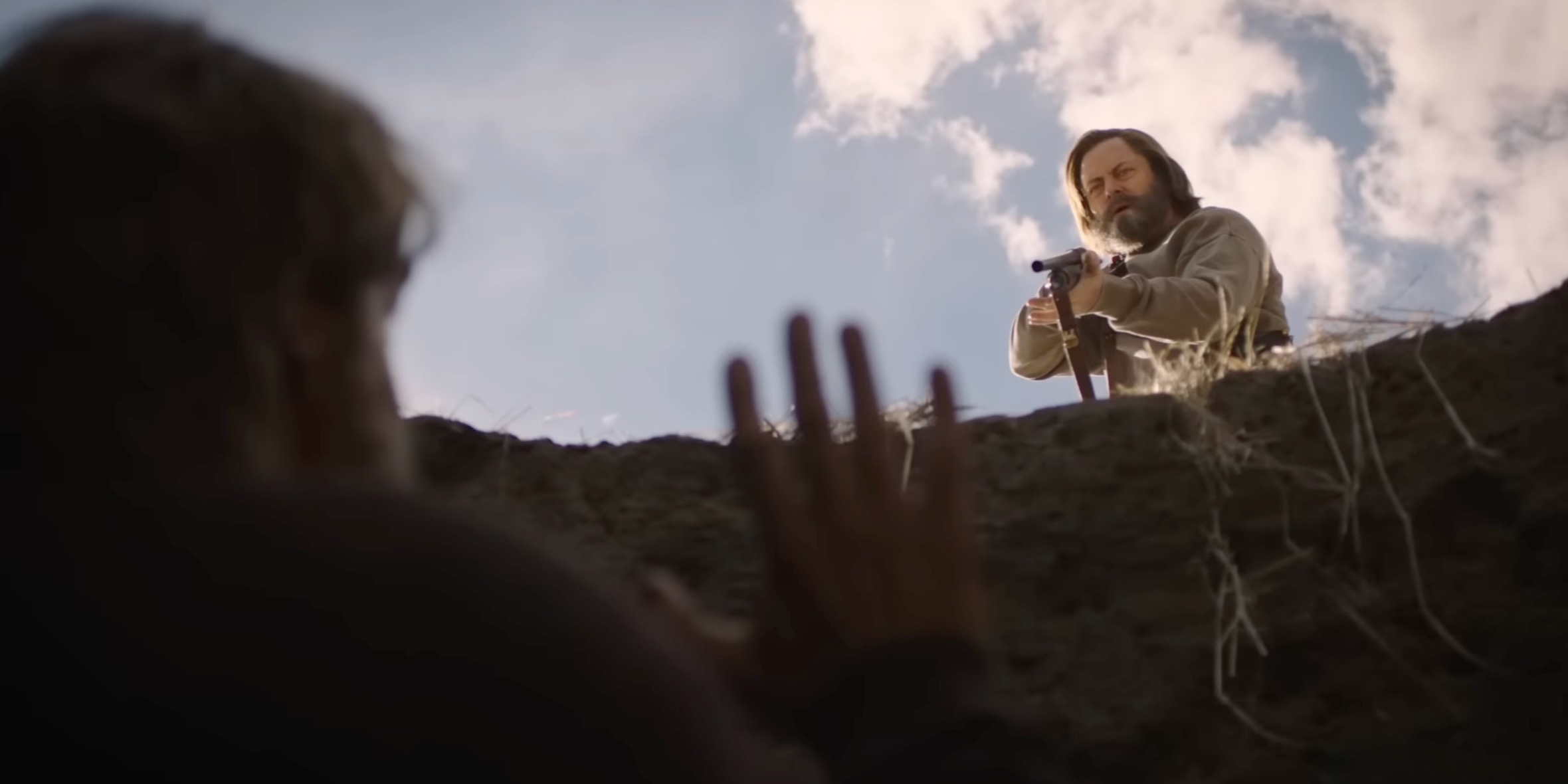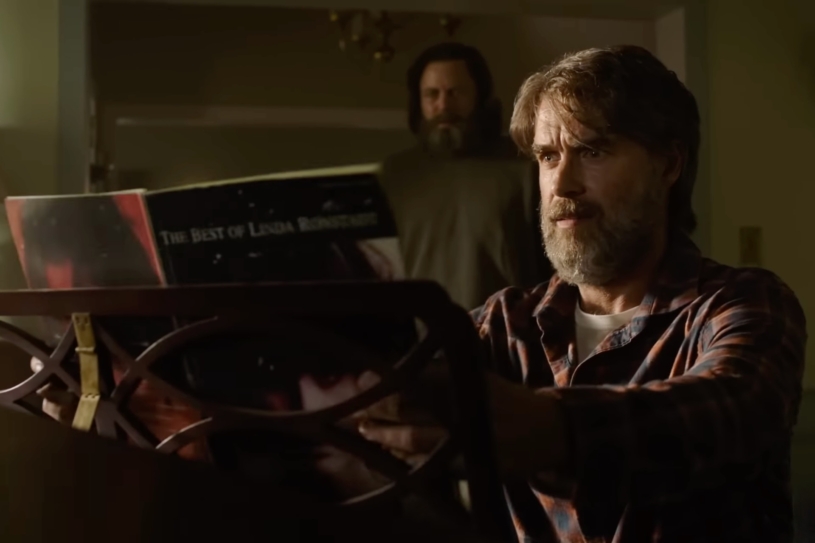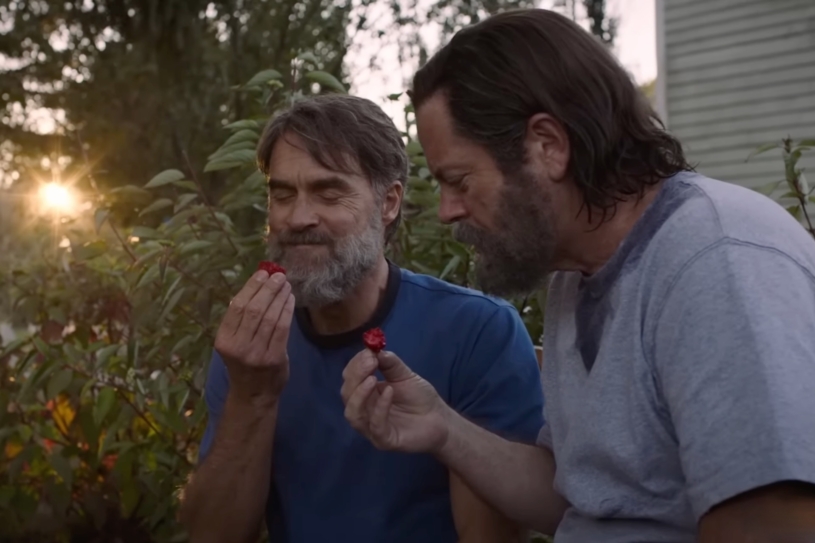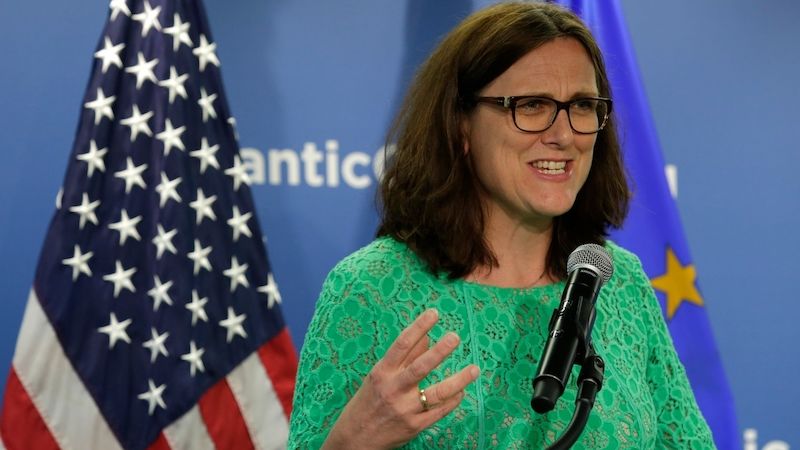When watching post-apocalyptic media, it often seems to me very cynical and sometimes even on the verge of misanthropy or nihilism. Practically always, the remaining human survivors are shown as beings who have lost the ability to cooperate and help each other, only the gross instinct for survival remaining within them, even at the expense of others. That doesn’t apply to the main character at most. The third episode of this series Last of us in this sense, it acts as an oasis of hope, imagining that even in a world on the brink of collapse, it is possible to find humanity unexpectedly.
The following text contains a plot reveal of the third part of The Last of Us series.
The TV adaptation of the highly acclaimed video game of the same name, set several years after a fungus pandemic that turned humans into zombies, has so far stuck to its premise. To the extent that it is not difficult for players to recognize certain scenes. From Sunday to Monday night, the episode is titled Old Long, but going in a completely different direction. Most of its 75 minutes of footage is spent with characters that only appear in-game.
Bill, played by Nick Offerman, is known primarily from comedies Urban Green Department (Parks and Recreation), is what is called survival. He spent a great deal of time and resources preparing for the apocalypse, so we meet him not long after the plague breaks out in the shelter under the house. From the first scene, it is clear that – like many people of her own kind – she is a right-wing libertarian who has absolutely no faith in government bodies, which for her are mere tools of oppression and people control.
A four year time jump reveals that he has been left alone in his own home, independent, and has built booby-trapped cages around his neighborhood that are immune to the infected. Only later do we learn that her current situation is not fundamentally different from life before the pandemic, as she has always been a loner shut off from the outside world. At the end of the episode, he leaves a note for protagonist Joel, in which he writes: “I used to hate the whole world and was happy when they all died.”
But everything changes with the arrival of Frank (Murray Bartlett), who falls into a trap in front of the cage. Despite her initial wariness, Bill allows her to wash up at his house and makes her lunch. Then when Frank finds a piano in the living room and clumsily plays something, it triggers a flood of emotions and desires in his host that Bill has repressed all his life. The time we spent with the two of them, almost none of them got infected, we just followed the lives of two men trying to survive together.
The decision to tell a separate, standalone story about a secondary character who would not appear again in the series is far from just a storyline. Joel and Ellie deal with Tess’ disappearance in the opening and closing parts of the episode. As we can guess from what we’ve heard before, Joel’s relationship with her is probably similar in many ways, so we have some indirect comments on that.
At the same time, the focus on the story other than the main characters makes room for messages about the world to stand out Last of us, which is not just trying to survive, but also wants to find meaning to continue. This dynamic also occurs directly between Bill and Frank’s life philosophies.
While the former, the survivor, was simply doing what would provide him with as much food, security, and peace as possible, the latter wanted something more. In Joel and Tess, with whom he formed a strategic partnership, he saw friends, he wanted to beautify his abandoned environment, he exchanged weapons for strawberry seeds, which do not have high nutritional value, but bring joy.
The approach taken by the creators of the show then stands out especially when compared to Bill and Frank’s fate in the game. It fits perfectly here with the nihilistic perspective mentioned in the introduction. Joel and Ellie run into Bill when he is alone. Frank is accidentally found hanged by the three after being infected.
He has a message for his former partner: “I want you to know that I hate you. I’m sick of this shitty town and your attitude. I want more out of life than this and you never understand. […] I guess you are right. Trying to leave this town will kill me. But it’s still better than spending one more day with you.”
Last of us I’ve never played, but I assume the same fate. Given what I’m used to in the genre, and how the show thinks about people on so many other points, I feel the impending relationship breakdown at every disagreement.
After all, Bill seems to be enjoying being the lone survivor far and wide after the end of the world at first. With a smile, for example, he follows his automated system to shoot the infected in the head, or with a rockabilly sound he travels around an empty city and collects what he needs. Decision from the right (he has a yellow Gadsden flag hanging in his garage with a toy and the inscription “Don’t Step On Me”) making survivors hidden gay is, on the one hand, a provocation to American conservatives, and on the other hand, a statement about the particular loneliness of such people.
Fear of opening up to others
Whether it’s fear of his own masculinity or other social pressures, Bill buries his nature deep inside. And in the spirit of the genre, but also to some extent reality, it’s reasonable to hope that he won’t suddenly change when confronted by an essentially random observer. However, the series was subversive in that it never lived up to those expectations.
Paradoxically, the state of the world he is shown also helps him to do this. On the one hand, during a period when Hobbesian “man is wolf” was at its most valid, it was not a good idea for anyone to trust anyone else. Yet, at the same time, it’s not hard to imagine that a long period of time (four years) spent in complete isolation from anyone else’s life would mellow even the greatest ascetic. Bill’s distrust of government organizations is vindicated given the military’s oppressive rule, but Frank – in at least one case – breaks his distrust of people.
Very precise notes waiter comments slash movie, such a context allows a more universal story to be told about how terrifying it is to open up completely to another. When Bill was about to sleep with Frank for the first time, which was the first in his life, actor Nick Offerman quite convincingly (after all, he’s probably never slept with a man himself) portrayed his uncertainty. He just lay there and nodded carefully. We also feel her sudden vulnerability, breaking free from literal and mental walls.
In this case, approach Last of us the theme of love’s fragility and caution, not only undermines expectations of the original work, but also its typical depiction in mainstream audiovisual works in general. Sensitive approaches, which are primarily a way of finding the way to another person, are extremely rare here. What’s more, it is set in the context of the last years of life, where the couple has to take care of each other in a different way from their youth.
More broadly, the episode follows the love story of two men who stick together despite their differences after the general collapse of civilization. Together, amidst all the chaos, they have built an oasis where it’s okay to be vulnerable. Then, when their relationship ends in old age due to an unspecified incurable disease, there is a romantic catharsis that is both touching and tragic.
The post-apocalyptic genre usually serves as a warning about the current direction of the world. After all, even a pandemic in the series Last of us caused by climate change. But the third episode shows that we don’t have to succumb to our worst tendencies and that our humanity – open to others – can be found even in the dismal conditions. Of course, this doesn’t mean that the apocalypse shouldn’t be prevented, it’s just that it’s never too late.

“Tv nerd. Passionate food specialist. Travel practitioner. Web guru. Hardcore zombieaholic. Unapologetic music fanatic.”









